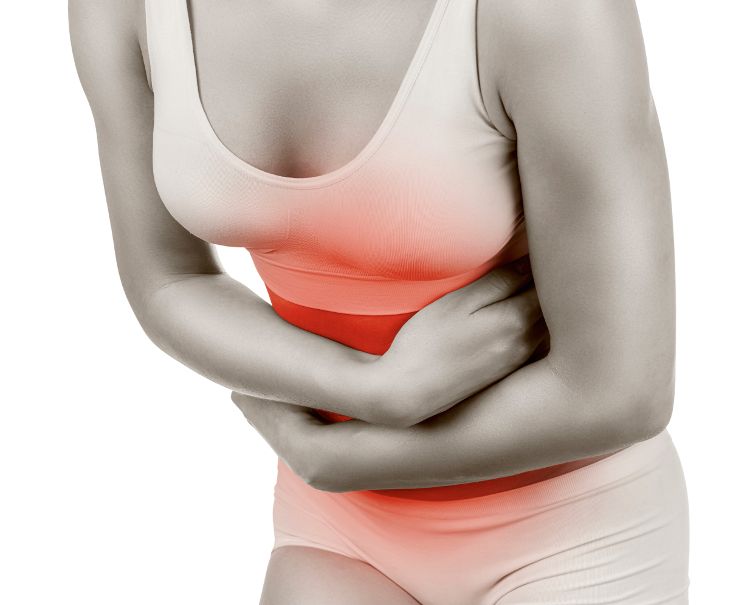Study finds that enzyme fructanase, which may help with digestion of high FODMAP foods, is safe and tolerable
A recent study found that a non-genetically modified, wild-type fructanase preparation manufactured by Bio-Cat as Optiziome Fructanase (previously known as Optiziome Inulinase) was well-tolerated and safe, compared to placebo.
Photo © iStockphoto.com/Artem_Furman

A recent study1 found that a non-genetically modified, wild-type fructanase preparation manufactured by Bio-Cat (Troy, VA) as Optiziome Fructanase (previously known as Optiziome Inulinase) was well-tolerated and safe, compared to placebo. In the study, 60 healthy male and female participants between the ages of 20 and 60 years were randomized to receive either a 400 mg capsule of the fructanase or placebo, twice daily, for four weeks. Dietary fermentable oligosaccharides, disaccharides, monosaccharides, and polyols, otherwise known as FODMAPs, are understood to contribute to the gastrointestinal symptoms of those with FODMAP sensitivities as well as irritable bowel syndrome. Oral enzymes, say the researchers, may be one strategy to reduce FODMAP exposure and associated symptoms. The objective of the study was to assess the safety and tolerability of microbial fructanase (also known as inulinase) which has been shown to hydrolyze fructan-type or inulin-type FODMAPs as well as related fructo-oligosaccharides (FOS) in vitro.
Results shows that those taking the fructanase experienced fewer adverse events compared to placebo. More specifically, five participants in the fructanase group reported five adverse events, while eight participants in the placebo group reported 13 adverse events. The adverse events reported in the fructanase group were mild in severity with the exception of one, which was reported as moderate in severity. Overall, the adverse events reported demonstrated no concerns for safety. With regard to gastrointentinal symptoms, there were no significant between-group differences in symptoms from baseline to the completion of the study, however the participants recruited were healthy, without gastrointestinal symptoms, therefore researchers had no expectations for such reductions.
The study was conducted by Nutrasource with funding from Bio-Cat. According to the company, the ingredient is one of only six fungal and microbial enzymes to be the subject of a successful New Dietary Ingredient Notification, and it is also self-affirmed GRAS (generally recognized as safe), allowing for its inclusion in food and beverages.
Consumers with food sensitivities and inflammatory bowel diseases are growing more aware of FODMAPs and actively seek out low-FODMAP foods as part of a low-FODMAP diet. However, many health foods are high in FODMAPs. Fruits such as apples, vegetables such as asparagus and cauliflower, as well as legumes and pulses such as almonds and chickpeas are high in FODMAPs.2
"All market indicators point towards consumers seeking healthier meal options, including high FODMAP dietary choices,” said Chris Schuler, CEO of Bio-Cat, in a press release. “As a company focused on digestive health, we understand the challenges consumers could face. I'm excited that the team was able to bring a new enzyme application to our customers and partners that addresses the growth of high FODMAP foods."
"We are delighted to congratulate Bio-Cat on the successful completion and publication of their clinical trial for microbial fructanase, a novel enzyme to aid the digestion of hard-to-digest fibers,” stated Lois Lin, medical writer and team lead at SGS Nutrasource. “This milestone is a testament to the collaborative efforts of the dedicated research teams, investigators, and study participants. At SGS Nutrasource, we are proud to have played a vital role in the design and conduct of this clinical trial, and look forward to Bio-Cat’s continued progress in bringing this novel enzyme to the market."
References
- Garvey, S.M.; LeMoire, A.; Wang, J.; Lin, L.; Sharif, B.; Bier, A.; Boyd, R.C.; Baisley, J. Safety and Tolerability of Microbial Inulinase Supplementation in Healthy Adults: A Randomized, Placebo-Controlled Trial. Gastro Hep Advances. Article ASAP. June 20, 2024. DOI: 10.1016/j.gastha.2024.05.013. (accessed 2024-07-11).
- Rossi, M. High FODMAP Food List. Healthline. June 2, 2022. https://www.healthline.com/nutrition/foods-high-in-fodmaps (accessed 2024-07-11).
Prinova acquires Aplinova to further increase its footprint in Latin America
April 7th 2025Prinova has recently announced the acquisition of Brazilian ingredients distributor Aplinova, which is a provider of specialty ingredients for a range of market segments that include food, beverage, supplements, and personal care.










